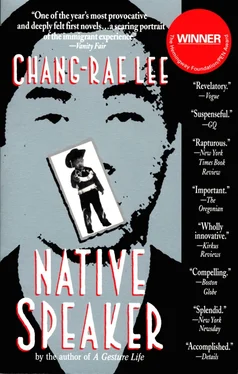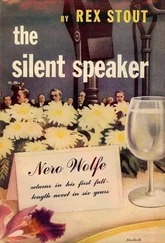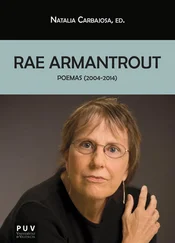A few weeks earlier I had revealed to Luzan the single infidelity during my marriage, a brief episode very early in my career with a Chinese woman whose importer husband I was attempting to encounter and track. The importer was extremely unpleasant, friendless, and I had no other avenue to get to him. I told Luzan what I could; for years I felt disordered by it, sickened, until I released the secret to him. The woman’s husband regularly beat her, and I used this to my advantage, terribly, as I was the retailer who would extend her warmth and tenderness on his buying visits. Of course I didn’t love her, I hardly liked her, but she was so pitiable and I so fearful and ambitious for my new career that we made love on several occasions in a washroom of their Brooklyn warehouse. But it didn’t help any, I was still shut out, and I stopped going to the display store altogether. I eventually reached her husband through his importers’ association, which would later blackball him for undercutting his fellow members.
But the woman, his wife, somehow crept back into my thoughts. I didn’t want to meet her, even speak to her, but I drove to her store and parked across the street, to wait for her to come out. Near the end of the day she finally did, quickly turning to lock the door, and when she turned to the street I saw the large fresh bruises about the side of her face and one eye, her head color unbalanced, like a soft yellow apple that has fallen off a counter, steadily rusting under the skin. She got into her car and I followed her for a dozen blocks, watching the back of her head, her signal lights, until I accelerated beside her to get another look at her face. She glanced over and saw me. It was her good side. She didn’t slow down or speed up and it was as if we were running on side-by-side tracks. She looked at me as if I were already dead, and then she turned her gaze back to the avenue and where she was going, the long way home to her husband.
In the second hour I turned the conversation back on Dr. Luzan. He asked me then if I would call him Emile. Emile. He said his great-grandfather was a French missionary who had been beaten senseless by a mob in his family’s village. His great-grandmother’s father saved him from being killed, and took him in and nursed him back to health. He spoke of his eight brothers and six sisters, how every one of them had eventually come to America, though a few had already passed away. He spoke of his beloved wife, and then of his teenage daughter, and of the new house they were building in Massapequa with a heated greenhouse in back for his wife, who wished to grow her native fruits and herbs. He was considering finally taking up golf. His practice was healthy, built up now for many years, and I could tell it was all adding up to the prime of his life, that noble time, a period that my father seemed to squeeze down to a few scant minutes around midnight, sitting with a beer in front of his projection TV, absently chuckling at wrestlers and clowns.
Into our third hour I got up to get a drink of water. I said when I got back I would be telling something about him and about myself and the greater circumstance of our new friendship. I felt I should leave him a gift. Honor him with some fraction of the truth. He nodded and said he would wait. I had already decided that I was going to advise the doctor to be careful in his future dealings, that he should be wary of unfamiliar invitations, strange visitors to his home or office, as well as chance meetings with other Filipinos, especially when he vacationed or traveled. I was prepared to reveal whatever was required for him to take me seriously, which would have probably been significant given how tattered and desperate he thought I was. I didn’t know anything at the time; Dennis had been as cryptic and evasive as ever, Jack professing nothing. But my suspicions and fears for the doctor were keen, not so much because of his political activities but from my simple fondness for him. I never dreamed that anything could actually happen to him, though theoretically, of course — and this in Dennis’ language — many events can take place.
I stepped out into the hall to go to the fountain and standing there in business suits were Jack and Jimmy Baptiste. Jimmy said hiya and put out his cigarette.
“Let us go now, Parky,” Jack said, his arm curling around my shoulders. “It is time.”
I looked back at Luzan’s door and started to speak but Jimmy swiftly approached from the side and pressed a bandanna around my mouth and nose. The cloth was laced with something like ether, though weakly, so that I wouldn’t fully lose consciousness, and they walked me out of the building affably telling people and security that it was my birthday and I was drunk. From the back of the car I desperately searched the windows of the three-story building, my thoughts clouded, somehow joyous, perverse, thinking of a moment long past when my mother and father both rode with me on a carnival ride of cups and saucers, and in my vision I thought I spotted him up there, everything twirling but him, his fleshy face, the old-style glasses, the greasy cut mop of hair, and then his roundish hand, bluntly pressed against the glass, more like a paw than an instrument, happily fingerless, bidding me goodbye.
And now I have Kwang. There are scores and scores of his versions scattered about the room, myriad trunks of him, thistling branches, specied and catalogued, a thousand stills of him from every possible angle.
But there is one more version I want to write for Hoagland, for the client, for the entire business of our research. The greater lore that I can now see. I want to tell them that what they have here is a man named John Kwang, born in Seoul before the last world war, a boy during the Korean one, his family not mercifully sundered or refugeed but obliterated, the coordinates of his home village twice removed from the maps. That he stole away to America as the houseboy of a retiring two-star general. Where he saved enough money to leave the general’s house in Ohio and go to New York. Where he named himself John. Where he was beaten nearly to death and robbed of all his savings. Where he worked in a Chinatown noodle shop and slept outside next to the steam vent and awoke one morning to see that his feet had turned almost black with the cold. Where he knew hunger again, that unforgettable taste of his other country. Where, desperate as he was, he took to stealing from others, one of them a young priest who saw something to salvage and took him to a Catholic orphanage. Where he first went to a real school and learned to read and write and speak his new home language. And where he began to think of America as a part of him, maybe even his, and this for me was the crucial leap of his character, deep flaw or not, the leap of his identity no one in our work would find valuable but me.
So I followed him. I wrote what I could. He knew I was near. I believed he wished me so. For how do you trail someone who keeps you so close? How do you write of one who tells you more stories than you need to know? Where do you begin, and where are you able to end?
Lelia came in on the 5:13 at the Ardsley station. I got there early, or the train was late, and I watched her as she stepped from the doors. It was raining lightly, and she wore a red silk scarf. Everywhere else was gray. This will always be the color of Westchester for me, that wan gray, the kind of gray that speaks of an impenetrable wealth, never too fancy. What my father so belittled and envied. You see it in the slate gray of a pristine Mercedes-Benz, the gray-white fumes funneling out the back, the gray mop of hair of the unsmiling woman at the wheel. Lines all over her face, her hands. She’s always driving alone.
The platform was nearly empty as it was Sunday and she looked around for me until she spotted our car across the tracks. I flashed the high beams. She didn’t wave, but just started walking, taking her time, marching up the stairs to the overpass and then back down to the street. As she approached the car I leaned over and pushed the door out to her. She angled herself in.
Читать дальше












